Induction Cooktop vs. Regular Cooktop: Which Is the Best Choice for Your Kitchen
When it comes to upgrading or replacing your appliances, one major decision is choosing the right cooktop. Induction cooktop vs. regular cooktop, which is the best for your kitchen? This post will walk you through the key differences, helping you decide which option is best for your needs.
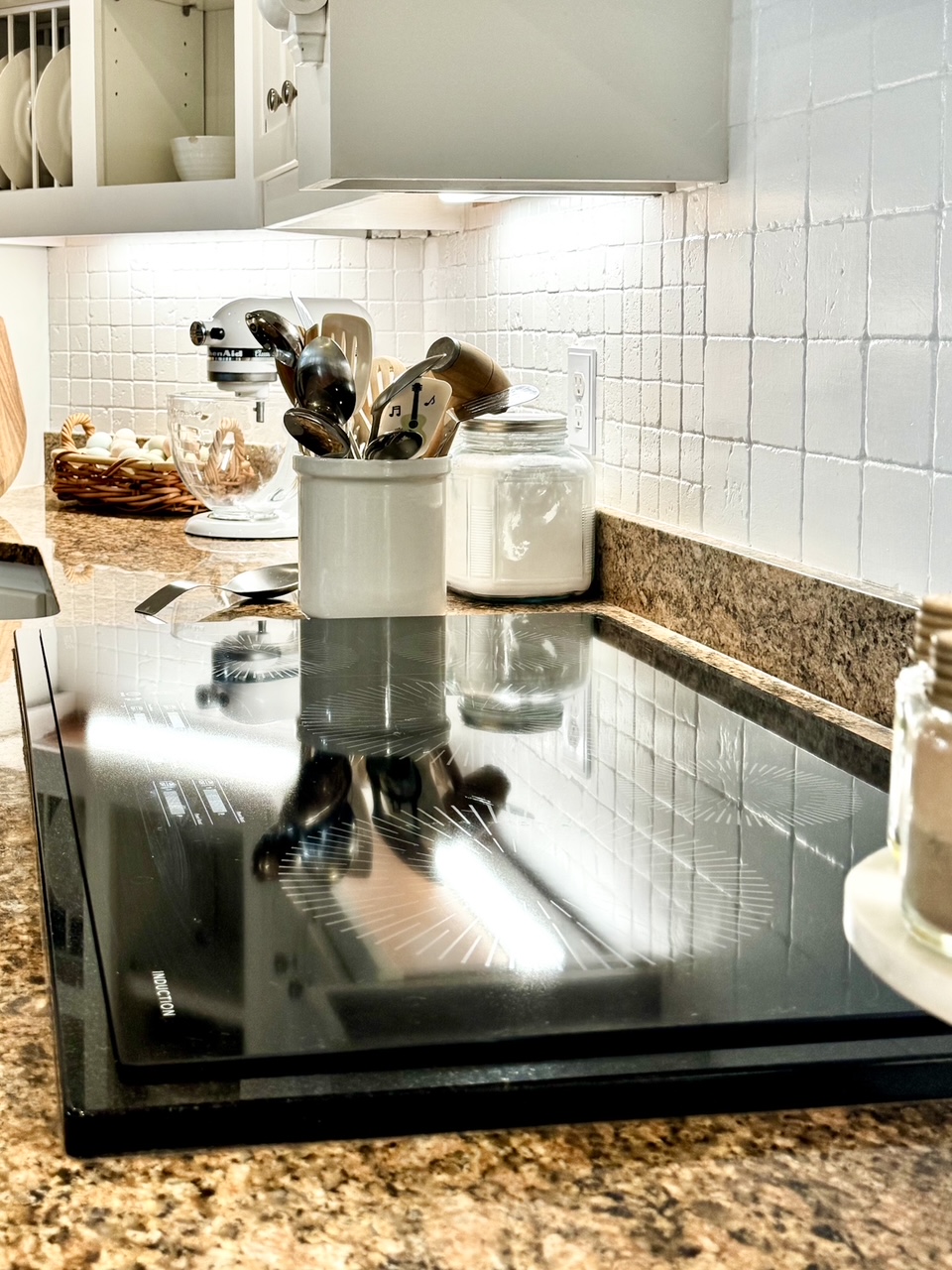
I’d say we were lucky to have our electric cooktop last for as long as it did. It’s true, they don’t make them like they use to. Things were going well with our 22 year old GE, until I dropped a can on the edge and it cracked.
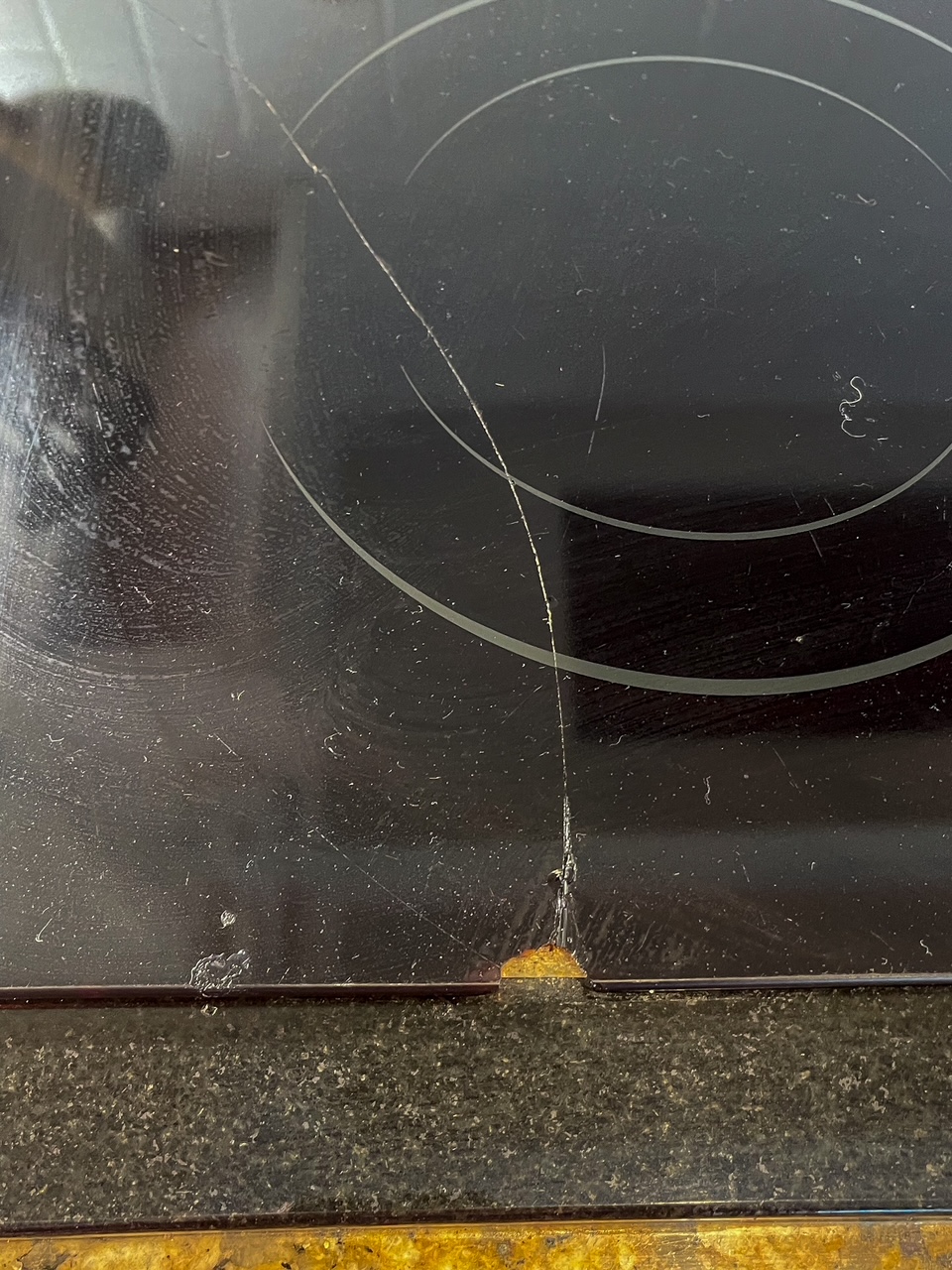
We actually lived with the crack for a good year or so because I had no idea what kind of cooktop I wanted….it had been a while since I went shopping for a cooktop. After a lot of research and homework, we settled on a Frigidaire 36 inch induction cooktop.
Induction Cooktop vs. Regular Cooktop
1. How They Work
- Induction Cooktop: An induction cooktop uses electromagnetic energy to heat pots and pans directly. The cooktop surface itself doesn’t get hot—only the cookware does. This leads to faster, more efficient cooking and reduces the risk of burns. I had to buy all new pots and pans designed for induction.
- Regular Cooktop: A regular cooktop, whether gas or electric, heats up the burner which then transfers heat to your cookware. Gas cooktops use an open flame, while electric ones have heating coils. Both of these options take longer to heat up compared to induction.
2. Efficiency and Speed
- Induction Cooktop: Induction cooktops are known for their speed and energy efficiency. Since the heat is generated directly in the pan, there’s little wasted energy. Studies show that induction cooktops are around 90% efficient, whereas gas stoves are about 40–55% efficient.
- Regular Cooktop: Gas and electric cooktops lose a significant amount of energy during the cooking process. Gas cooktops are less efficient because much of the heat escapes into the air. Electric cooktops fare better, but they still don’t match the precision of induction.
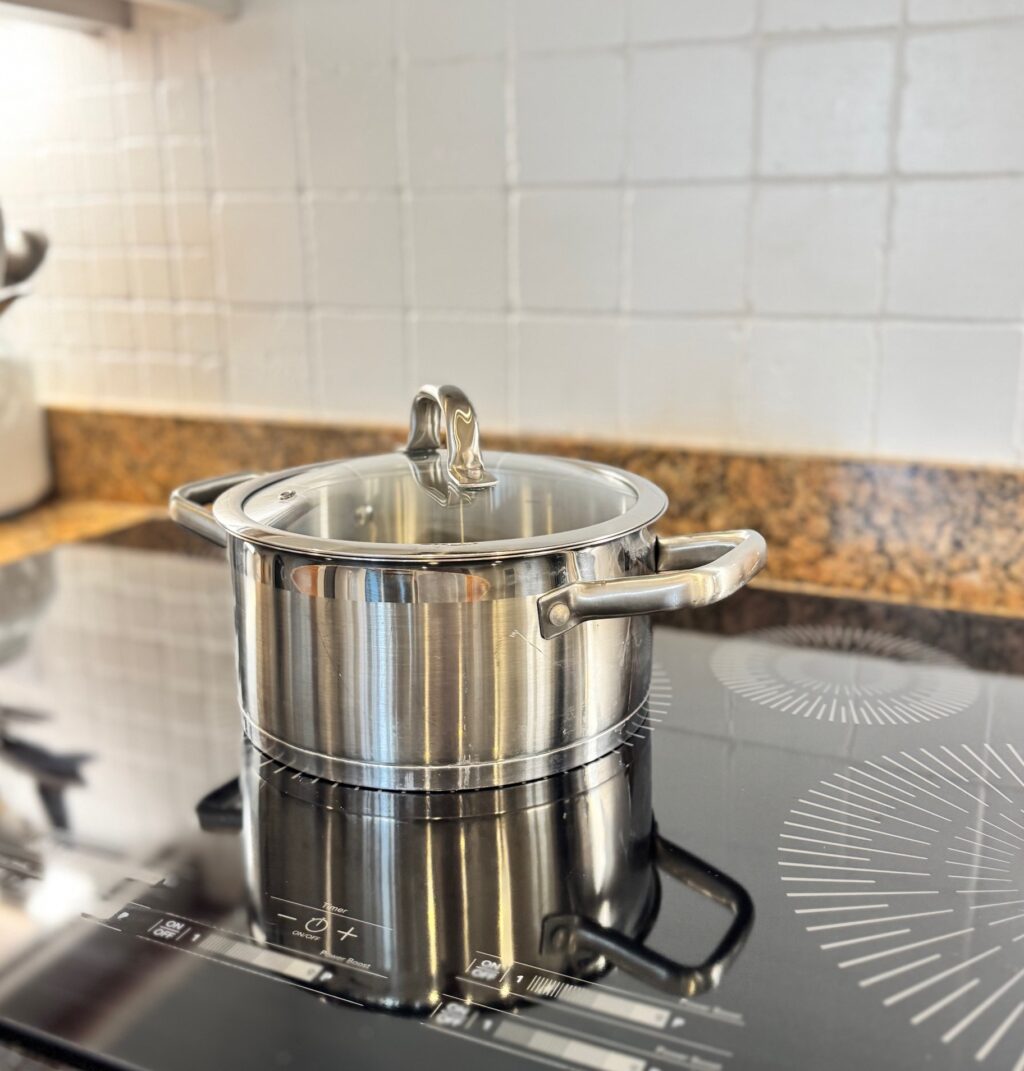
3. Temperature Control
- Induction Cooktop: One of the biggest advantages of induction cooking is its precise temperature control. You can adjust the heat instantly, similar to how you would with a gas cooktop, but with more accuracy. This makes it easier to avoid overcooking or burning your food.
- Regular Cooktop: Gas cooktops allow quick adjustments, but the control isn’t as precise as induction. Electric cooktops, on the other hand, take time to heat up or cool down.
4. Safety Features
- Induction Cooktop: Safety is the real benefit. Since the surface doesn’t heat up unless cookware is present, it’s much safer, especially for households with children. Some models also include features like auto shut-off and child lock for extra security.
- Regular Cooktop: Gas cooktops come with certain risks, like open flames and the possibility of gas leaks. Electric cooktops are safer in this regard but can still cause burns if touched after use. Safety features like automatic shut-off are less common in regular cooktops.
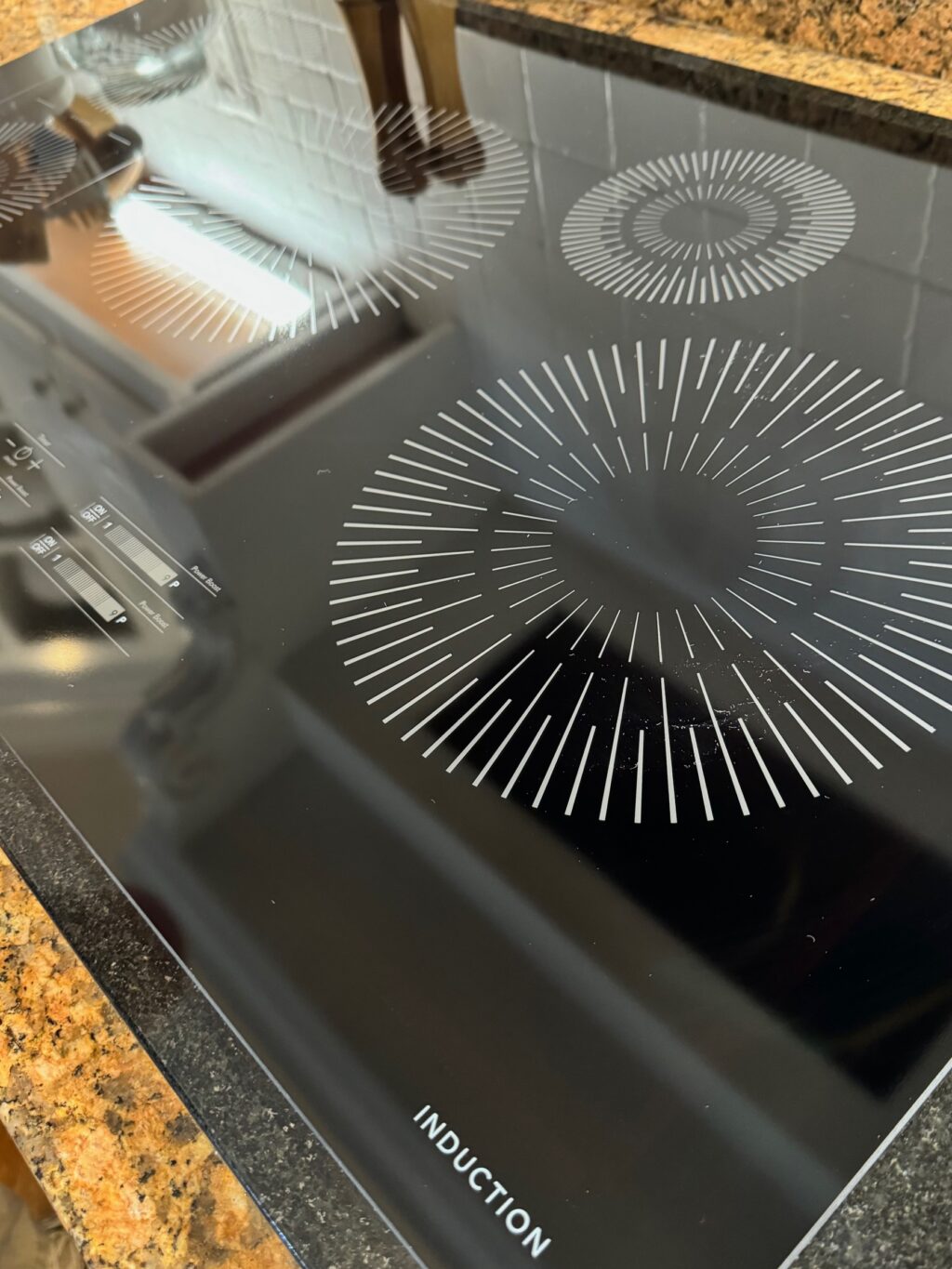
5. Cost
- Induction Cooktop: The initial investment for an induction cooktop is higher. Induction-compatible cookware may also be required if you don’t already have it. However, the long-term savings on energy bills can help offset this. I have not been able to measure any savings in my electric bill.
- Regular Cooktop: Gas and electric cooktops are generally more affordable upfront, but they may cost more in the long run due to less efficient energy use. If budget is your primary concern, a regular cooktop might seem like the better deal, but you’ll want to consider operating costs too.
6. Cookware Compatibility
- Induction Cooktop: Not all cookware works with induction stoves. You’ll need pans that are magnetic, like those made from cast iron or stainless steel. Non-magnetic cookware, such as copper or aluminum, won’t work unless it has a magnetic base. I bought these pots and pans for the cooktop. For the 17 piece set, you can’t beat the price.
- Regular Cooktop: Gas and electric cooktops are compatible with all types of cookware, making them a more versatile choice for people who don’t want to invest in new pots and pans.
7. Maintenance and Cleaning
- Induction Cooktop: Cleaning an induction cooktop is much easier because the surface doesn’t get hot enough to burn spilled food. You can wipe down the smooth surface without worrying about scrubbing off cooked-on spills.
- Regular Cooktop: Gas cooktops can be tricky to clean, especially around the burners. Electric cooktops are easier, but spills can still bake onto the surface, requiring more effort to clean.
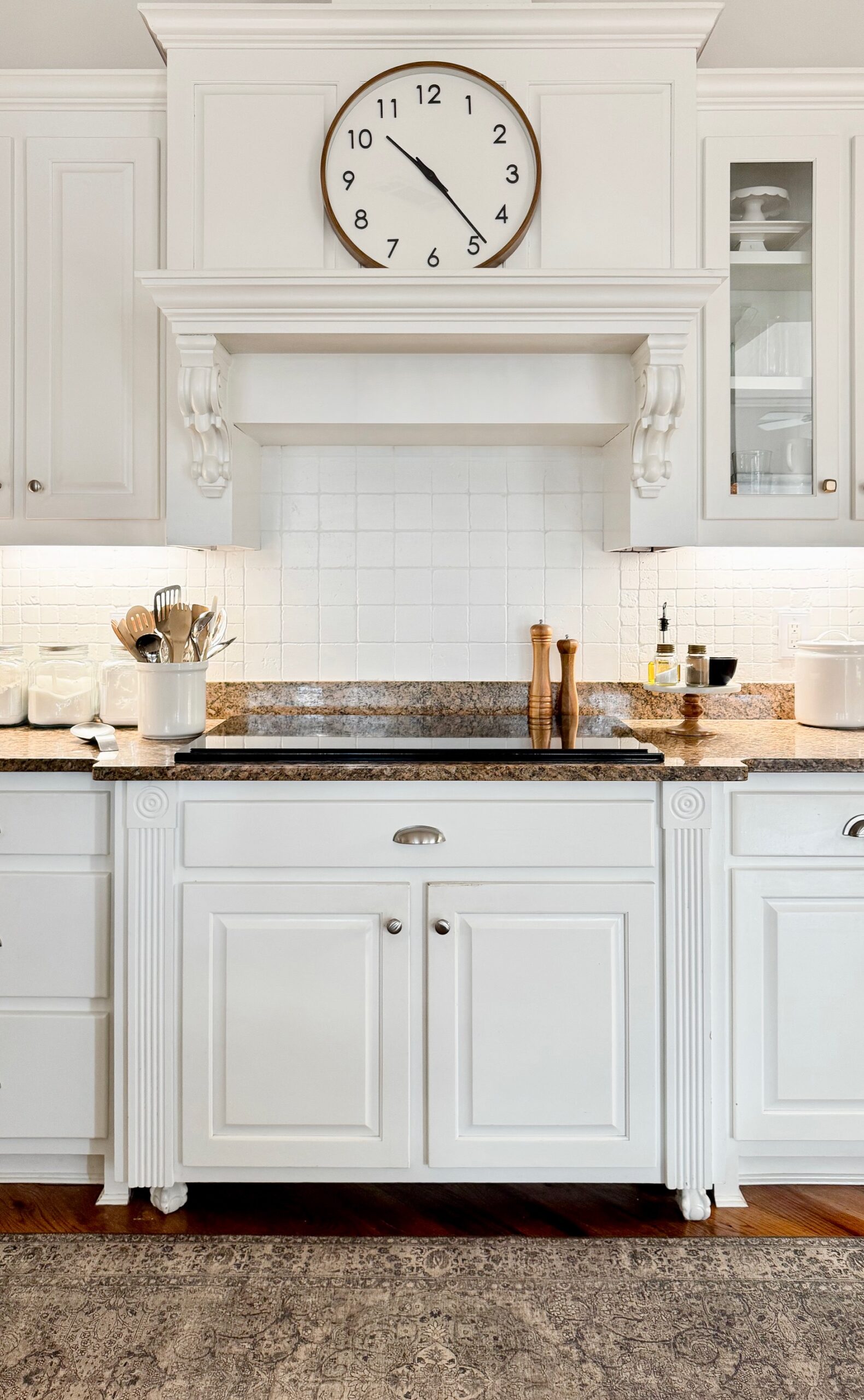
Which Cooktop Is Right for You?
If you prioritize energy efficiency, speed, and safety, an induction cooktop is the better option. It’s perfect for those who cook often and want more precision and control. However, if you’re budget-conscious or prefer the familiarity of gas or electric stoves, a regular cooktop might suit you better.
When making your decision, Induction Cooktop vs. Regular Cooktop consider your cooking habits, budget. Either way, both induction and regular cooktops have their pros and cons, and understanding them can help you choose the one that fits your needs.
Hopefully this Frigidaire induction cooktop will get just as much time in my kitchen as my old one. If you have any questions please feel free to DM or leave in the comments.
What to look for when buying a refrigerator.

This post may contain affiliate links for products that Duke Manor Farm uses, suggests or recommends to its readers.






Hey Laura, love the post dear, you know I’m rearranging my kitchen and thinking about putting an induction cooktop in my new setup, thank you for sharing.
Such an informative comparison! I never realized how much of a difference the cooktop type can make in daily cooking.